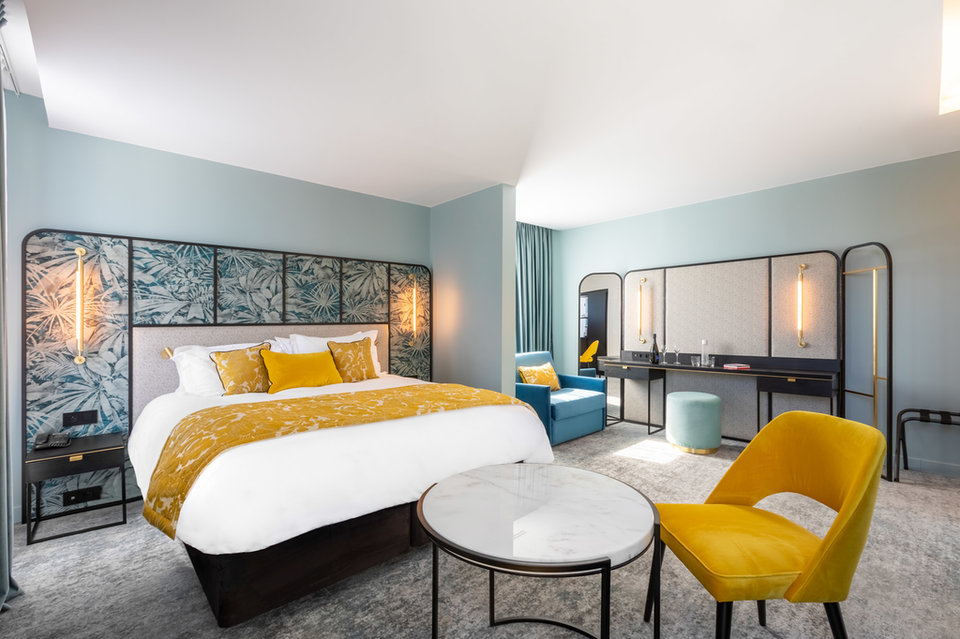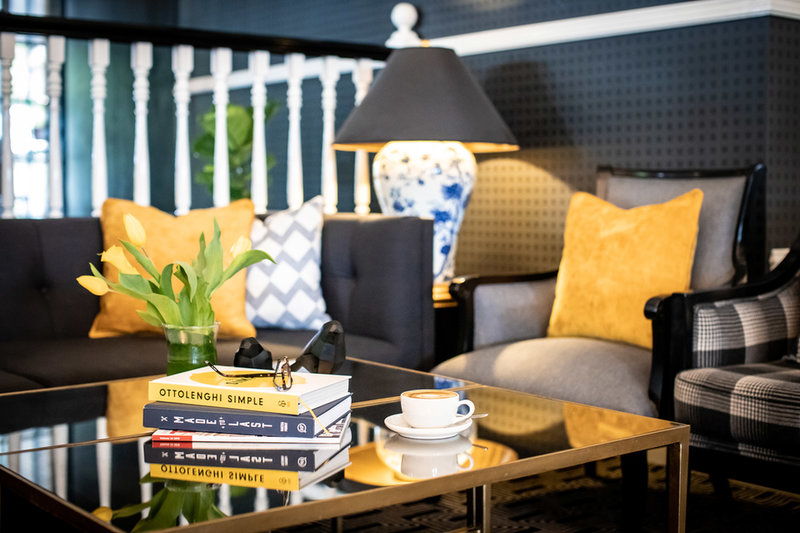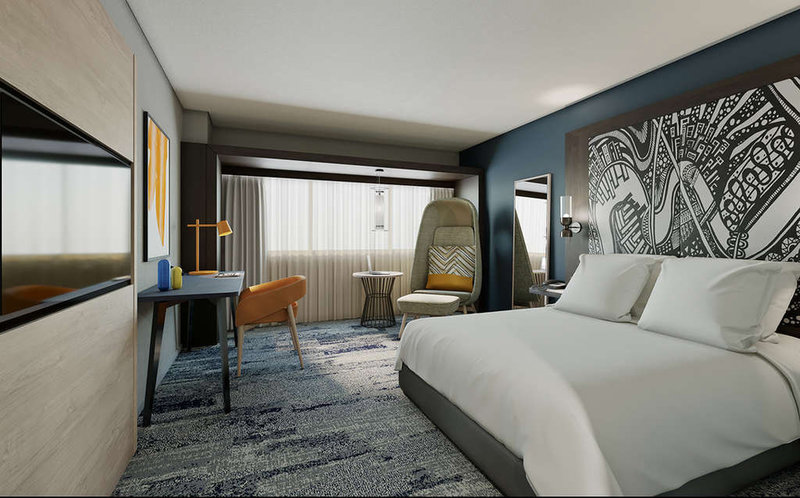Industry
The rise of soft branded hotels
Ongoing financial and workforce limitations are making it harder for independent and boutique hotels to implement solid marketing strategies and negotiate more flexible terms with supplies. This has led to a substantial rise in independent hotels associating themselves with a soft brand. Alex Lovefinds out more about this trend.

C
ovid-19 has left independent hotels much more exposed to financial losses than larger chains. This has led to a growing number of independent hotels considering a soft brand arrangement for greater financial security.
A soft brand association means that independent hotel owners don't have to sell up or enter a more formal franchise arrangement with the parent company. Soft brands typically cover the higher end of the market.
Examples include Marriott’s Autograph Collection, Hilton's Curio Collection and more recently IHG's Voco Hotel Brand. The independent hotel receives support from the larger brand but often retains its individual branding.
The association can be mutually beneficial for both parties. The parent brand’s cash reserves and marketing channels can put an independent hotel in a stronger position financially.
The partnership can also raise the independent hotel’s profile and potentially bring in more business through other means such as the parent brand’s loyalty programme. And the partnership can cut the reliance on online travel agencies for bookings.
Along with receiving fees from the independent hotel, the parent company has the opportunity to expand its portfolio with something different. This may be a distinctive boutique hotel, a niche property in an appealing location or a building of historical significance.
GlobalData travel and tourism analyst Ralph Hollister predicts the frequency of soft brand partnerships will rise as independent hotels seek to secure their future in the recovery from Covid-19.
“Being closely tied to a major player during the pandemic will increase the chances of an independent hotel navigating through a period of economic downturn, as the business is not going through it alone, it is almost like a 'power in numbers' concept as the independent reaps savings from internal economies of scale through the partnership,” says Hollister.
“Large parent companies can cherry-pick independents to partner with that have niche strong points that they cannot specialise in, i.e., a high-quality food and beverage (F&B) or physical aspects such as a rooftop terrace bar that offers a luxury cocktail experience. Parent hotels have realised that traveller needs are becoming more fragmented and personalised.”

Market conditions
Business travel volume for 2020 was half that of 2019 due to the global effects of the coronavirus. Estimated market losses are ten times higher than those incurred after 9/11 or the 2008 global banking crisis.
There are predictions that the global business travel market now might not surpass 2019 levels until 2025. And once the recovery is underway, it is also not yet known just how much of an impact the rise of video calls during the pandemic will have on future business travel numbers.
James Ellerby – senior lecturer in hospitality business management at Sheffield Hallam – says that the current market circumstances could risk independent hotels rushing into a soft brand association.
He urged hoteliers to do their homework to be certain that the parent brand is right for them and ensure that the larger company’s reputation aligns with the market the independent hotel is pursuing.
Some operators are now looking at soft brand affiliation as a stopgap remedy just to stop the haemorrhaging of the operating costs.
"We've seen markets decimated over the last year. I think some operators are now looking at soft brand affiliation as a stopgap remedy just to stop the haemorrhaging of the operating costs they've been witnessing over the last 12-14 months,” explains Ellerby, who also runs a company offering hospitality management consultancy and training services.
"On the surface, it might look great, because there's a brand there with strong recognition. But if the market itself isn't there – if this brand is affiliated with significant business travel and the business travel just isn't there – then whether you're affiliated with them or not, it's not necessarily going to bring business through the doors,” he adds.
"There's a real temptation to the hoteliers to look at this. And it can be a great decision, but it's got to be taken very carefully.”

Exploring the benefits of brand association
Association with a recognised brand can have a big effect on an independent hotel’s reputation. If there is a positive news story involving the brand, then this may also result in more customers making bookings at the independent hotel.
And a parent brand’s considerable marketing powers can send out messages more quickly. For example, hygiene has been a major concern for consumers throughout the pandemic and they are taking a greater interest in cleaning procedures.
Where large brands have an advantage is that they have the power to rapidly introduce new standards. They can use their communication channels to announce changes, which also benefits the associated independent hotels.
A large brand has the ability to really quickly create and implement these new policies and procedures.
“In relation to the pandemic, we've all become much more aware of the importance of hygiene standards, health and safety. They've never been any more important to consumer confidence in a property. They’re absolutely paramount,” explains Ellerby.
“A large brand has the ability to really quickly create and implement these new policies and procedures. And importantly, to then communicate those out to a vast number of people very effectively.
“So, there is a potential benefit, which operators will be looking at the moment in terms of being affiliated with a trusted brand that is able to state: ‘this is what we're doing to protect your safety’. It could be a real benefit.”
Yet this can also work the other way as far as reputations go. If the reputation of the parent brand suffers, then the independent hotel can also suffer by association. For example, if there is a widespread customer data breach at the parent brand, then it could make customers reluctant to stay at hotels associated with it.

Image Credit
Retaining an independent identity
There is a perception that partnering with a parent brand can water down the identity of an independent hotel. But this all depends on the soft brand agreement, with many keen to preserve the existing appeal. If a partnership results in a hotel losing an identity that sets it apart from other properties, this may defeat the object of the soft brand association in the first place.
“These independent hotels can still retain decent levels of independence – compared to if they entered a traditional franchise agreement – such as hotel name, design and service style,” adds Hollister.
“However, levels of independence may be restricted in comparison to when they were fully independent. Independence could depend on how 'hands on' or involved a parent company wants to be in the partnership.”
Levels of independence may be restricted in comparison to when they were fully independent.
Similar views are shared by Ellerby, who adds there is also a risk of the independent hotel owner having control of their operations taken away and being side-lined in key decisions.
“There is that risk of losing identity and losing the autonomy of the owner through the control that they have. And that's where it's not necessarily for everybody,” Ellerby says.
“There are some hotels out there and operators, and they're very proud to be independent, they might have something that's unique. And they don't want that uniqueness or that identity of independence to be diluted by being associated with a brand being represented on their platform.
“The key question always has to be whether that brand company is offering something that an independent property just can't access. Are they missing out on market share if they don't have that affiliation?”
All images credit: IGH